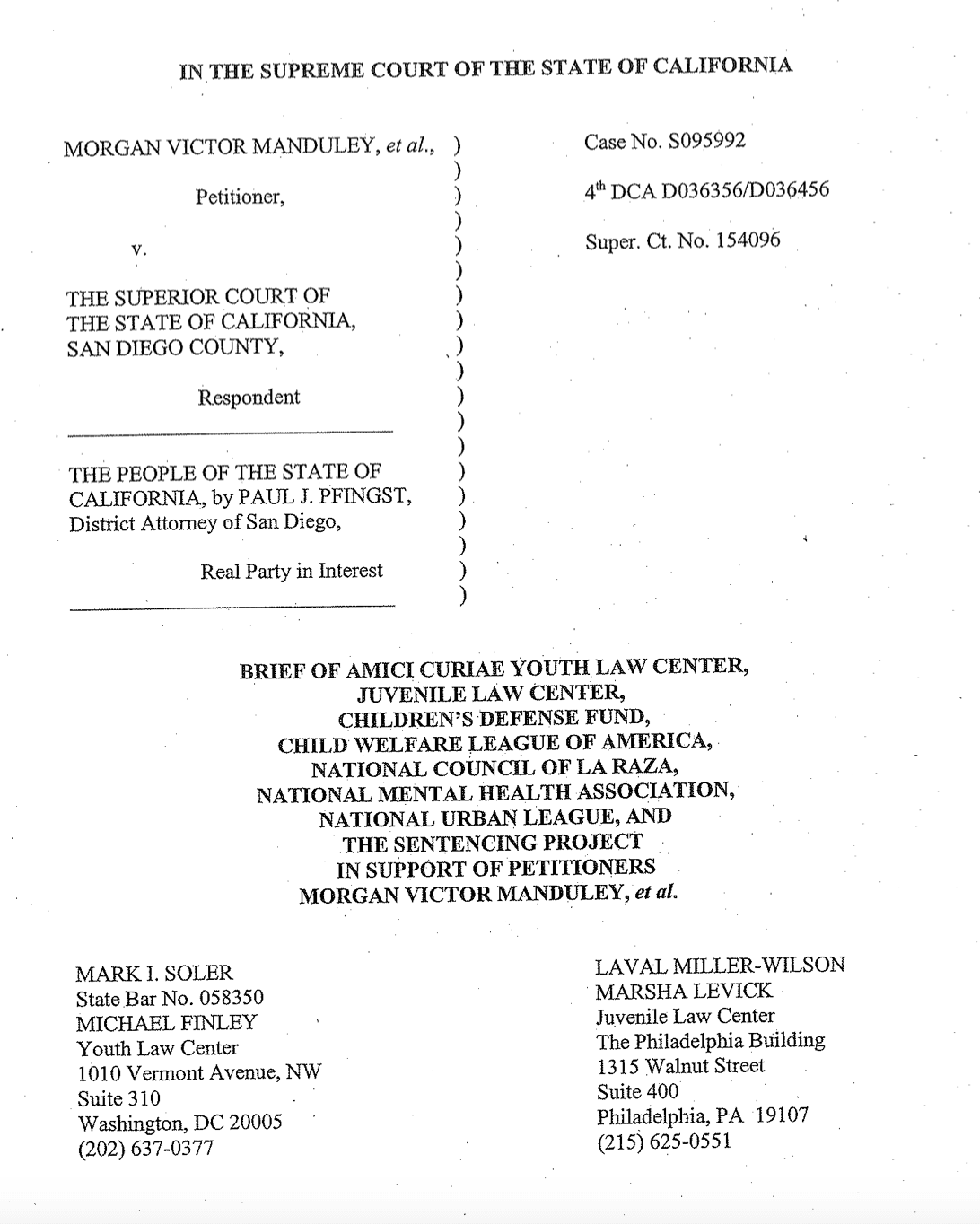
Summary of Argument
On March 7, 2000, Proposition 21, the Gang Violence and Prevention Act of 1998, was approved by ballot initiative. Among other things, Proposition 21 provides for increased prosecution of juveniles in adult criminal court, increased incarceration of youth in adult correctional facilities, "direct filing" by prosecutors in adult criminal court for certain specified offenses by juveniles, and determination by prosecutors of both formal charges against juveniles and available sentencing options.
Proponents of Proposition 21 argued that passage would enhance public safety. In point of fact, empirical research demonstrates that prosecution of juveniles in adult criminal court actually increases recidivism, thereby reducing public safety. In addition, prosecuting young people in criminal court and incarcerating them in adult facilities places them at significant risk of physical and emotional injury. Moreover, Section 26 of Proposition 21 provides no guidelines for prosecutors in making decisions which youth to transfer to adult court, and thereby allows prosecutors to ignore developmental differences between adolescents and adults, as well as individual differences among adolescents. In this brief, amici present the empirical research on these issues.
Amici are also concerned that prosecution of juveniles in adult criminal court, particularly as authorized by Section 26 of Proposition 21, will exacerbate racial disparities for youth in the justice system. Section 26 allows prosecutors to decide both the formal charges to file against a juvenile and—because prosecutors can charge in juvenile court or "direct file" in adult criminal court—the sentencing options available to the juvenile. This is important because youth of color are overrepresented throughout the justice system, and empirical research demonstrates that minority youth receive different and more severe treatment than white youth, even when charged with similar offenses. Moreover, the disparities accumulate, so that racial disparities at the point of arrest are added to the racial disparities at the point of determining whether to detain a youth before adjudication, which in turn are added to the disparities that occur when formal charging decisions are made by prosecutors, which in turn are added to the disparities that occur when prosecutors make decisions whether to waive youth for prosecution in adult criminal court, and which are finally added to the disparities that occur at disposition and in decisions whether to incarcerate. As a result, the most authoritative empirical analysis demonstrates that youth of color are more than three times as likely as white youth to be arrested, processed through the system, and ordered into residential placement.
Empirical research in California indicates that these accumulated racial disparities occur in the justice system in this state. Allowing prosecutors to make the decisions at two critical points in the justice system, to assume both the executive charging function and the judicial sentencing function, is inimical to the administration of justice and is likely to exacerbate racial disparities in the system. One check on racial disparities in the system is the diversity of decision-makers at key points in the system—police, prosecutors, judges, corrections agencies. Consolidation of multiple functions into a single office, particularly the office most directly responsible in the legal system for obtaining convictions of alleged offenders, is a recipe for potential abuses of discretion.